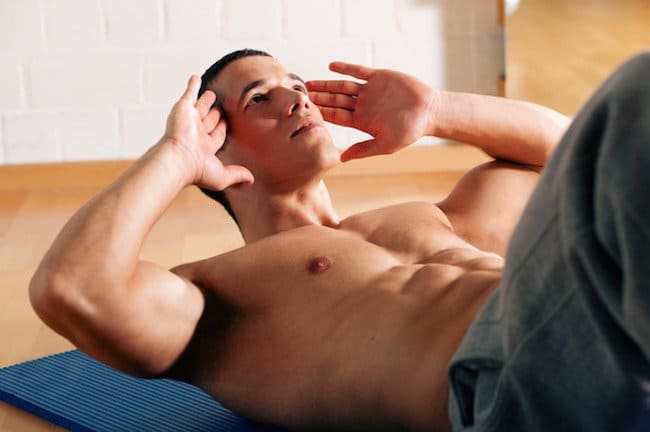
We often exercise to lose weight and stay in shape, but does increasing physical activity levels also make us want to eat more?
Whilst an effective work out is a great way to shed kilos and burn fat and calories, it can also have a dramatic effect on our appetites. Whilst many people experience a suppressed appetite after an intensive workout, this may be short-lived. The majority of exercisers can increase the appetite and hunger levels later in the day when they work out.
This increased hunger can be detrimental to weight loss, as many people are drawn to unhealthy or high fat and calorie foods to fend off hunger, thus consuming more calories than they burnt during their workout in the first place. See also: How many calories to burn for weight loss
Effect of Exercise on Appetite Hormones
According to various studies, physical activity affects the release of two key appetite controlling hormones in the body. Ghrelin, which is a hormone known to stimulate the appetite, drops, whilst peptide YY, a hormone responsible for suppressing the appetite is also effected by physical activity in varying levels. The response depends on the type of activity and the length of time for which it is carried out.
Anaerobic and Aerobic Exercise
Aerobic exercise such as running, cycling or any activity which gets you heart pumping has been found to have the effect of decreasing ghrelin levels and increasing the amount of peptide YY (hormone responsible for suppressing the appetite) in the blood stream. It should be noted however, that to see these effects, a reasonably high intensity of cardiovascular activity must be carried out.
A leisurely stroll is unlikely to have any perceivable effect, but a strenuous spin class will. Not only that, but the higher the intensity, the longer the effect seems to last.
What does research say?
In the British study, carried out at Loughborough University, eleven male university students ran for 60 minutes on a treadmill, and then rested for seven hours. During the session participants completed questionnaires to evaluate their perceived levels of hunger. Ghrelin and peptide YY levels were also measured at various points.
These results were then compared to the same group of participants after an anaerobic exercise session and after a session with no physical activity.
After a 90 minute weight lifting session, followed by a six and a half hour rest, participants were found to have decreased ghrelin levels, which indicate some appetite suppression. However, peptide YY levels were not significantly altered. This suggests that aerobic exercise has a greater effect on suppressing hunger.
Changes in appetite after exercise
Although we are aware that exercise has some effect in suppressing the appetite through hormonal regulation, there is some question as to how long this effect lasts.
A 2007 study published in the Journal of Endocrinology suggested that whilst hunger was suppressed during and directly after exercise, most people experienced an increased appetite later on and usually ended up eating more than those who did not exercise.
It has also been suggested that as the body cools down after exercise, appetite returns, as heating of the body may also produce a suppressing effect on appetite. This is due to the fact that during exercise there is increased blood flow to cool the body, which may in part detract from the digestive system.
A combination of increased blood flow to the digestive system and an increased metabolic rate after exercise may make us eat more.
Hunger hits harder for women
It has also been suggested that the effect of exercise on appetite may not be equal between the sexes, with women often feeling the need to refuel more strongly than their male counterparts.
It is thought that this is due to an increase in longer term appetitive-regulating hormones such as insulin and leptin in women, which is not seen as strongly in men.
How to eat and get the most out of your workout
There is no doubt that exercise is beneficial not only for weight loss, but also for feelings of wellbeing and reducing the risk of lifestyle diseases such as diabetes and cardiovascular disease.
However, it is important that we don’t undo all our hard work with poor eating choices after a workout. Whilst a hard gym session may suppress the appetite for a short time, if you work out you are likely to feel hungrier at some stage during the day.
When this hunger hits, it is essential to choose healthy food options and steer away from quick hunger busters such as sweet and high fat foods. Choose high fibre, lean protein and low GI foods to sustain yourself for longer, particularly when working out.
It is also important to be realistic about the amount of calories you have burnt in a workout. Many people think they are burning far more energy than they actually are therefore feel they can eat whatever they want after a workout.
You can also read How to suppress your appetite – 10 Natural ways to curb your hunger
References used in this article











David says
I am really starving after doing my cardio exercises and try to reduce my appetite drinking water and diet coke. Yes, diet coke gives me the feeling that I am consuming something more than just water and helps to overcome my desire to eat a nice big hotdog right away …